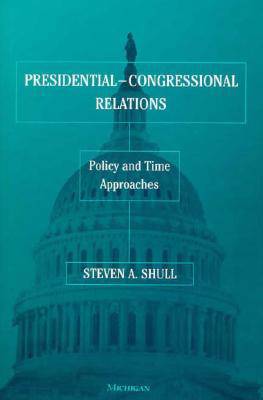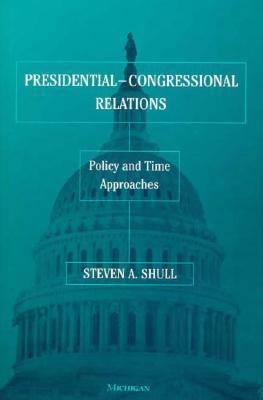
- Afhalen na 1 uur in een winkel met voorraad
- Gratis thuislevering in België vanaf € 30
- Ruim aanbod met 7 miljoen producten
- Afhalen na 1 uur in een winkel met voorraad
- Gratis thuislevering in België vanaf € 30
- Ruim aanbod met 7 miljoen producten
Zoeken
€ 144,45
+ 288 punten
Omschrijving
When Congress and the presidency are controlled by opposing parties, the potential for conflict between the two branches is often emphasized. And yet both conflict and cooperation between the president and Congress are an essential and ongoing part of the policy-making process whatever the split in government might be. Starting with Theodore Lowi's idea that different kinds of policies have different kinds of politics, political scientists have created ways of classifying policies that enable us to explore the politics associated with types of policy. For example, some argue that the relationship between the president and Congress on foreign policy issues will differ from the politics of public works projects because the president and Congress will bring different levels of interest and political and institutional resources to bear on these policies.
Steven Shull explores several of these policy typologies in order to develop a picture of how presidential and congressional relations are different from issue to issue and how we can predict when the president and Congress will cooperate or when they will fight. In addition, he looks at changes over time in how the two branches of government relate on policy issues, examining the relationship between the presidency and Congress from the Eisenhower Administration through the first Clinton Administration. This study breaks new ground in combining several policy typologies with a longitudinal analysis that sheds new light on the nature of presidential and congressional relations and on the usefulness of these typologies.
This book will appeal to political scientists and historians interested in the presidency and Congress.
Steven Shull is Research Professor of Political Science, University of New Orleans, and the author of many books and articles on the presidency.
Steven Shull explores several of these policy typologies in order to develop a picture of how presidential and congressional relations are different from issue to issue and how we can predict when the president and Congress will cooperate or when they will fight. In addition, he looks at changes over time in how the two branches of government relate on policy issues, examining the relationship between the presidency and Congress from the Eisenhower Administration through the first Clinton Administration. This study breaks new ground in combining several policy typologies with a longitudinal analysis that sheds new light on the nature of presidential and congressional relations and on the usefulness of these typologies.
This book will appeal to political scientists and historians interested in the presidency and Congress.
Steven Shull is Research Professor of Political Science, University of New Orleans, and the author of many books and articles on the presidency.
Specificaties
Betrokkenen
- Auteur(s):
- Uitgeverij:
Inhoud
- Aantal bladzijden:
- 192
- Taal:
- Engels
Eigenschappen
- Productcode (EAN):
- 9780472108329
- Verschijningsdatum:
- 26/09/1997
- Uitvoering:
- Hardcover
- Formaat:
- Genaaid
- Afmetingen:
- 161 mm x 237 mm
- Gewicht:
- 485 g

Alleen bij Standaard Boekhandel
+ 288 punten op je klantenkaart van Standaard Boekhandel
Beoordelingen
We publiceren alleen reviews die voldoen aan de voorwaarden voor reviews. Bekijk onze voorwaarden voor reviews.







